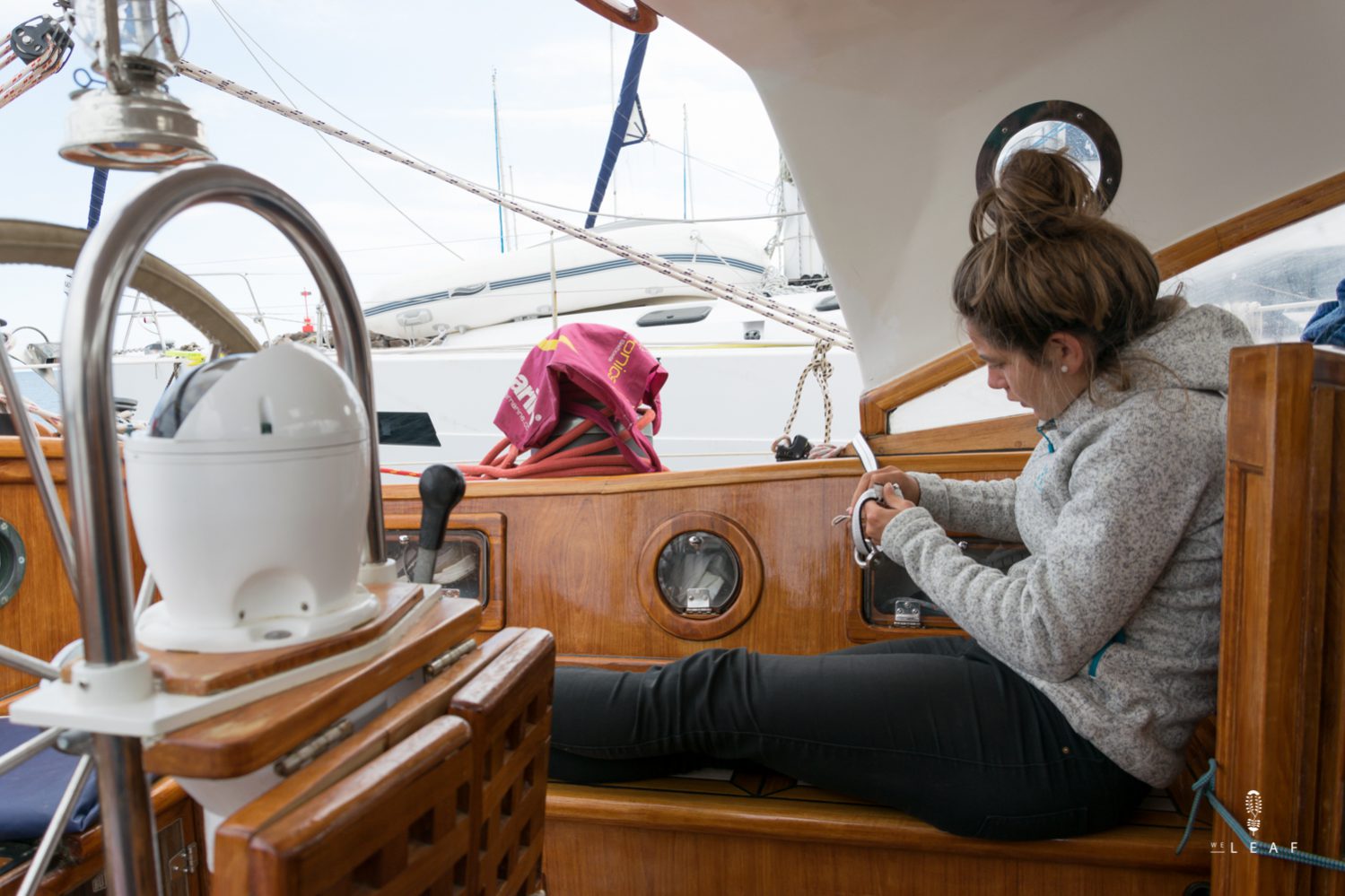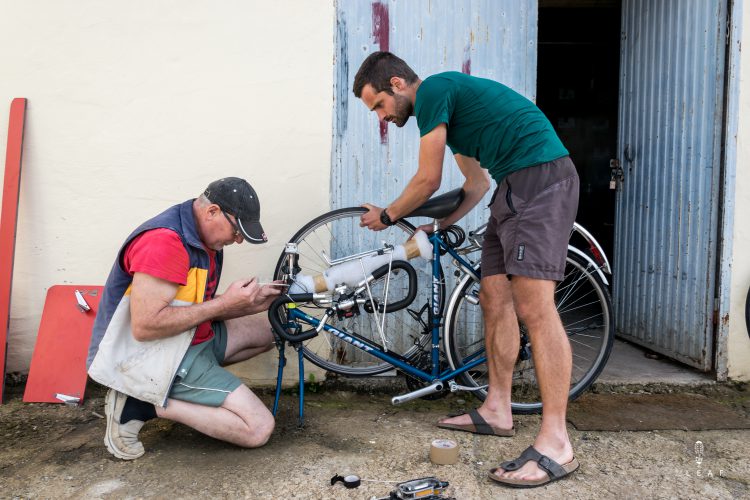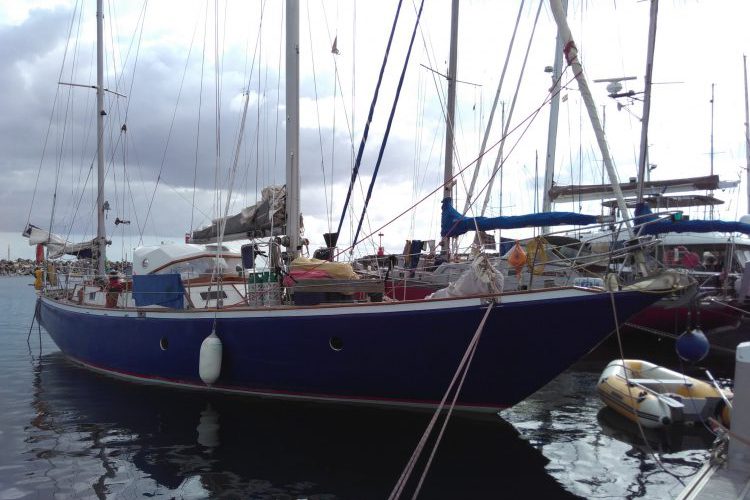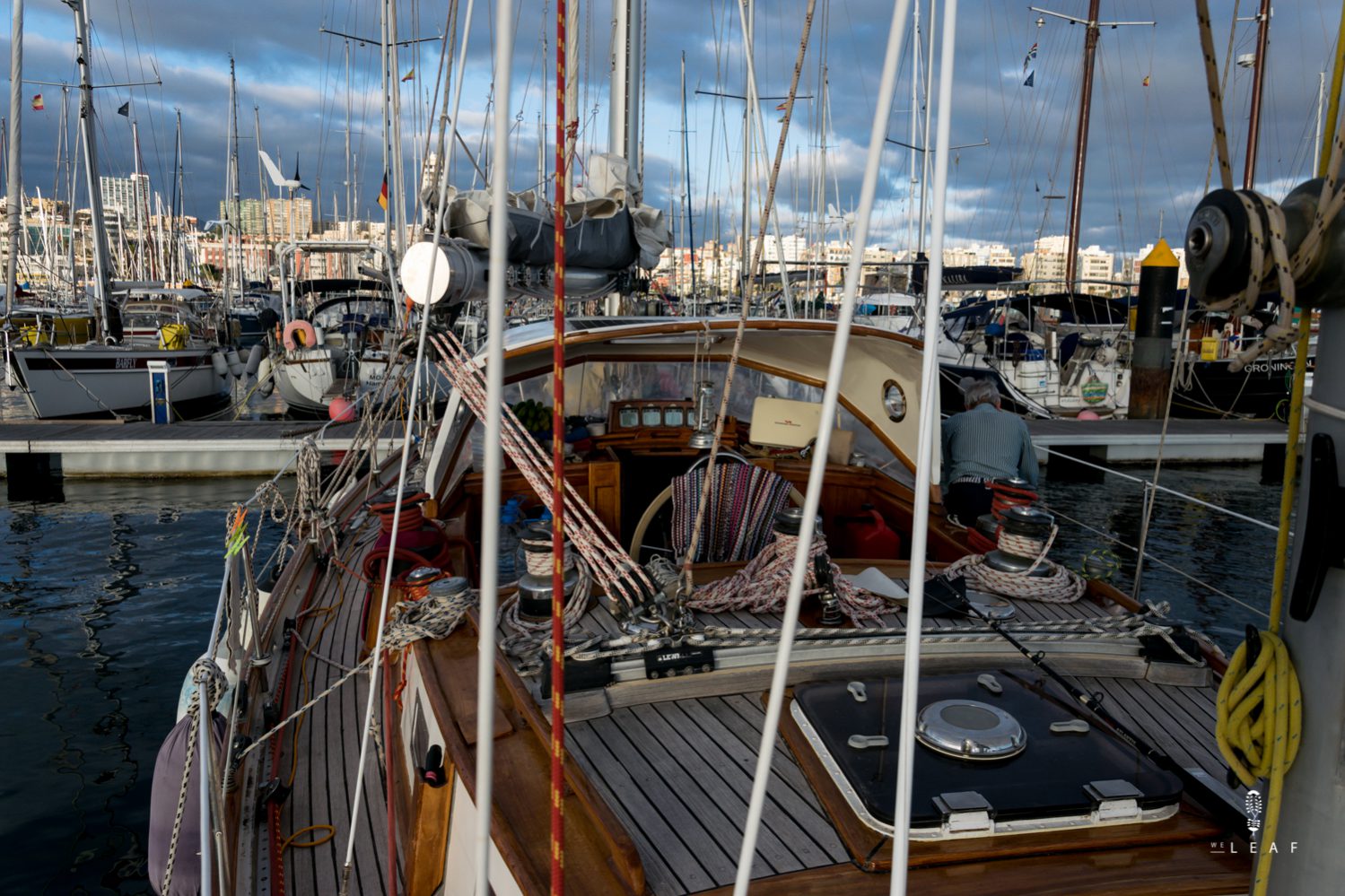
Exchange children

Our little opportunity
February 20, 2017
The seasick crossing
February 23, 2017
Januari 22nd - Muelle Deportivo
We got to know him on the Ferry to the Canary Islands and now, one month later, wave them goodbye like a family. Jean Marie and Lina feel as if they are our stand-in parents. They invited us as guests, but we became their children. Now they exchange us, trusting on a safe sail, in a good boat with good people. Jatinga is our new home.
Dieter and Margrit are our new 'travel parents'. The goal is to cross the Atlantic together on their beautiful boat 'Jatinga'. A trip that could take three months because we will make stopovers in Cape Verde and The Gambia. According to our sailing friends in the harbour we are fortunate. The fifteen meter long Jatinga is a stable boat which must be smooth in the water. It better is, because this ketch is designed by the famous Dutch sailing yacht designer Ericus van der Stadt. But is doesn't matter how many square meters, at sea it still is a house without an exit.
Proudly we lift our packed bicycles on deck and are guided to our own place in the boat, the cabin. In the harbour we will sleep in the prow of the boat. Our berth is a bunk bed, oblique positioned, and there is just enough place to stand right. Margrit emptied all the cabinets, a luxury because in a boat everything has its place. Next to our cabin is a tiny bathroom, just to small to turn around. We are lucky, more fortunate than this would be too much.
The first days we get to know our new family. We learn the Jatinga house rules and respect them. Coffee with milk in the evening, tea in the morning, enough pepper in the meals, let the dishes dry in the sink, but most important, be careful with the knifes of a Swiss. The atmosphere is calm and relaxed. Dieter and Margrit are caring and reserved. Uneasy silences do not exist, not because they do not appear, but this is just the way they are. Captain Dieter often surprises us with a dose of humour and in the daytime we give our helping hand. The Sahara sand is cleared, a new lifeline installed and Olivier got some dinghy driving lessons. Dieter puts his trust in Olivier, which means that roles are often split too authentic. A disappointment for Zoë, who is eager to do the job as well. Anyways we are happy whenever we can help, in particular digital. Zoë design a new Jatinga business card, while Olivier sets up a blog and explores the Iridium satellite.
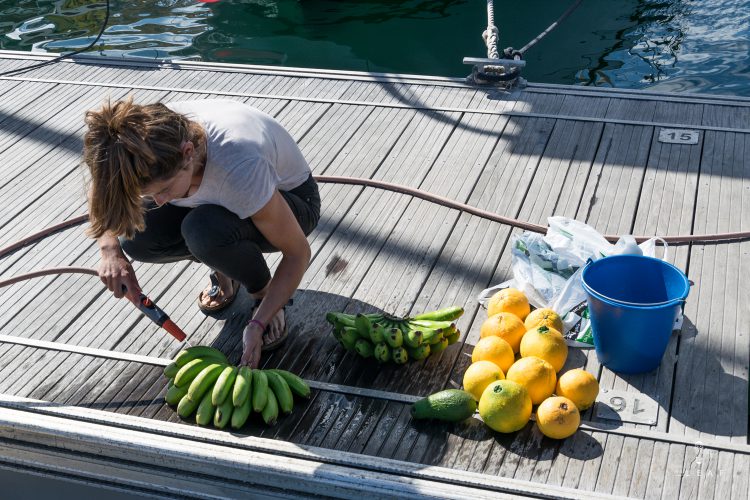
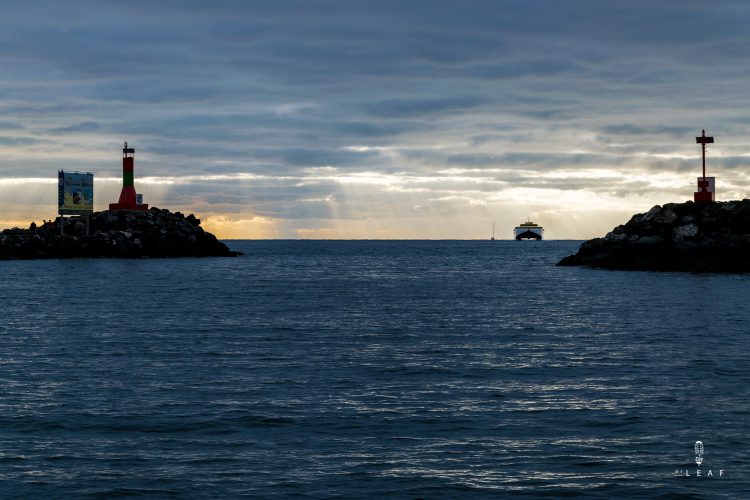
The Hiperdino, a Canary supermarket brand, is the final chapter of the departure scene. The hiperdino-mini vans give away every boat that leave for the cross. A bunch of green boxes, filled with a month long supply, are dropped at the boat. Now it's our turn! A sign that we're leaving soon. Together with Margrit we head to the supermarket without any shopping bag. Unorganised we wander through the shopping racks. Margrit not used to cooking for four, and we wonder what is and what is not possible to cook at sea. We agreed to make five recipes each, to cover the first ten days. The fruits and vegetables we will buy later. In the end we pay a couple of hundred euros and return home without even one item of our survival stock.
We made a lot of friends after living one month in the harbour, so just before we leave they all invite us for a goodbye diner. We run out of time, but are happy to say our friends goodbye. Also with Jean Marie and Lina we eat for the last time. They go to Lanzarote for a couple of days so won’t be able to wave at us when we leave. The next morning we wash all the fruits and vegetables, fill the water tank up to 600 liter and make the inside of the boat ocean proof. Suddenly everything goes really fast, we clear the lines and leave! First we head to the gasoline station, because a sailing ship carries a massive motor.
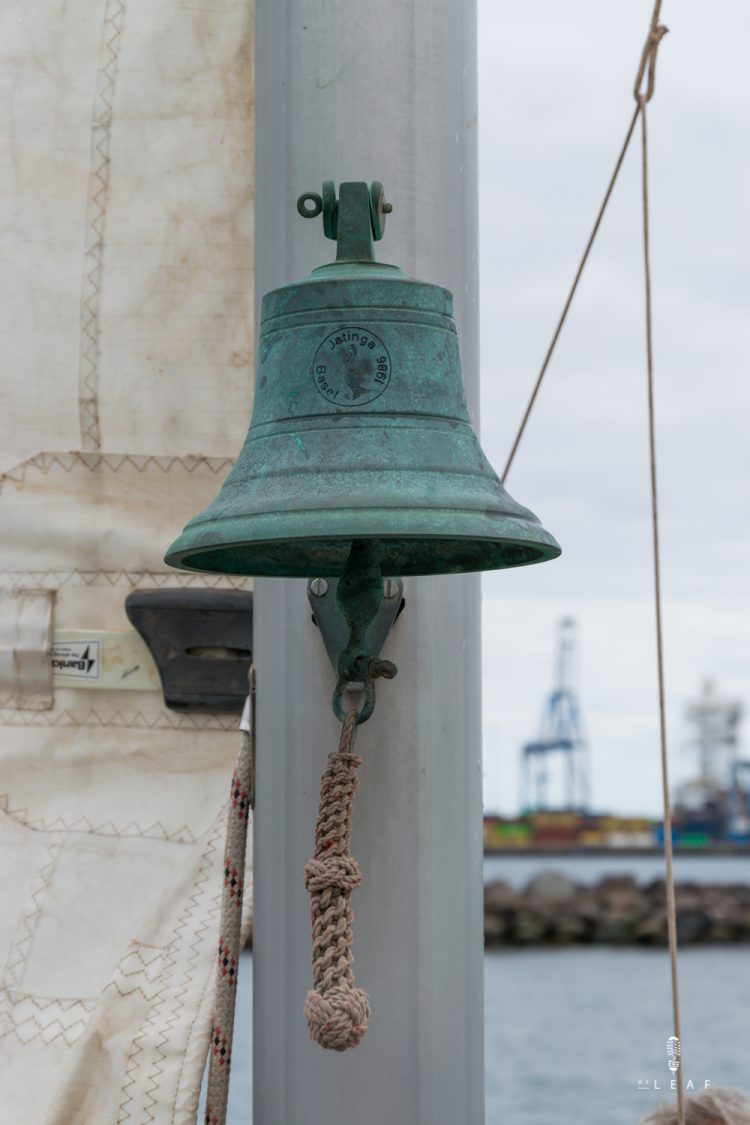
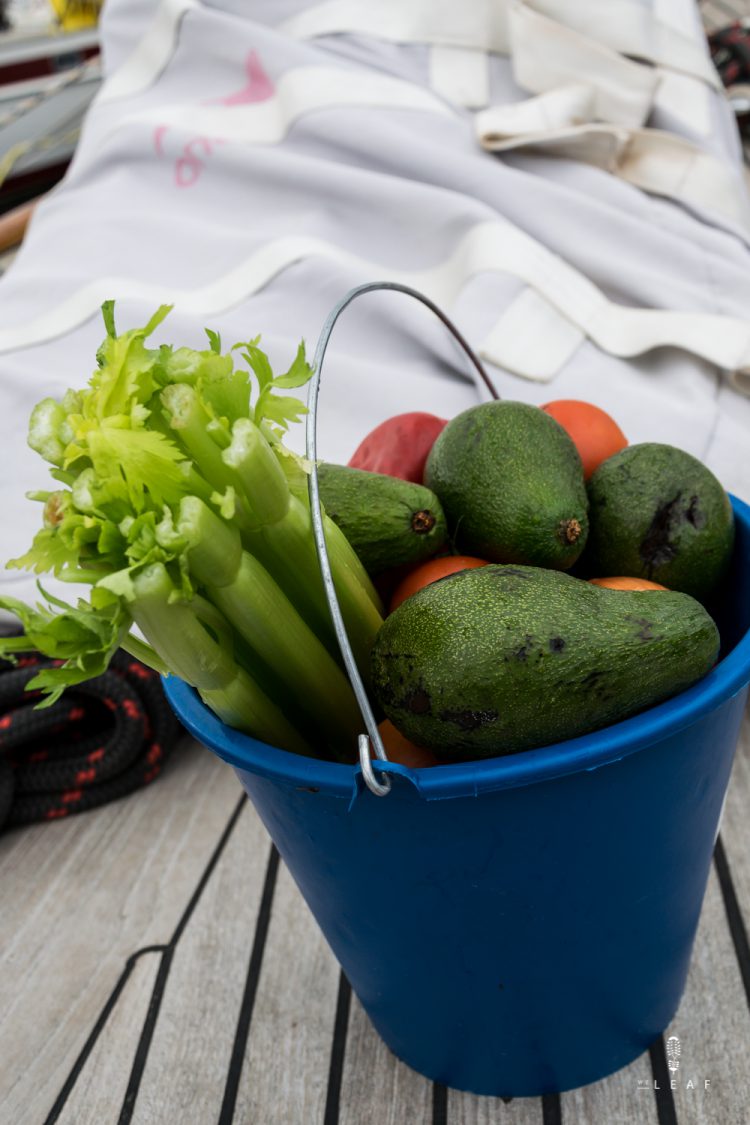
“Full” Zoë shouts en jumps back on board. Proudly we post a departure picture on Facebook. But then we hear Margrit grumbling, they can’t find the Visa card. Half an hour long we stare disappointed because we know how long it can take before a new Visa card arrives on the island. Then finally the relief “found it” and Dieter turns the key to start the engine. Nothing happens. He gives is another try, but still no sound. The motor doesn’t start. Quickly we understand the problem, an engine filled with water, maybe the worst you can have. The poor captain is immediately stricken with migraine. It’s clear, there is a big chance that this boat is not going to cross.
Dieter is working all night long to pump out the water and clean the engine. Half a miracle later, we are able to navigate to the anchor place just outside the harbour, but the problem is still not solved. We cannot go back into the harbour, we left our place, so we lost our place. We try to be positive and take this opportunity to get used to the swinging of the boat. There is no connection to the electricity and water grid so we depend on our own supplies. We live day by day. Every morning a new solution for the problem arises, first the waterpomp, then the exhaust. Everybody in the harbour is thinking with us, but captain Dieter has his trust on a German engineer, who speaks the same language and knows a lot. A miscommunication between Jean Marie, also a motor engineer, and Dieter makes us think that the German engineer accidentally switched two pipes when doing the maintenance last week and we already declare him as a fool. A wise lesson for us, do not denigrate someone before you’re absolutely sure, because he did nothing wrong. In the meantime another spectacle occurred. We are walking in the city center while John calls us and asks “are you on board because the boat is drifting?”. We hurry back to the harbour and see Dieter and Margrit fighting with the anchor to prevent the boat crashing on the rocks. Finally they have the boat under control and we anchored in the middle of the channel. The anchor got loose and there was no working engine to navigate the boat. We start to be impatient, a lot of things are happening but with all the discussions in German it’s hard to understand the problem. Oh oh, will we still cross?
